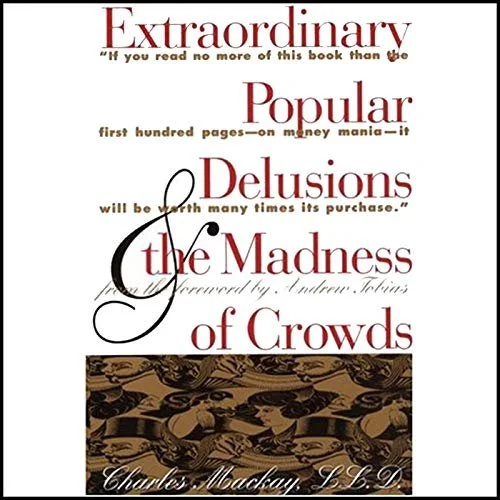Extraordinary Popular Delusions and The Madness Of Crowds & Confusion de Confusiones
Extraordinary Popular Delusions and the Madness of Crowds by Charles Mackay is a book I’d heard referenced countless times but had never got around to reading. When I saw it available on Audible, I decided to finally give it a listen. This edition combines Popular Delusions with Confusion de Confusiones (translated as Confusion of Confusions) The two works pair together naturally through their shared exploration of financial mania and collective irrationality of crowds. Combined, they run just shy of eight hours in audio format, making for a manageable and deeply worthwhile listen.
Both books examine how irrational enthusiasm for profit can cloud judgment and lead to disastrous outcomes. Confusion de Confusiones takes a fictional approach, exploring trading exuberance and speculative behaviour using a narrative style, whilst Extraordinary Popular Delusions recounts real-world economic events. What’s most striking is how modern both feel. Despite being written in 1688 and 1841 respectively, the psychology and patterns they describe could just have easily been written about today’s markets. Even the language can at times seem surprisingly timeless.
Listening to them, it’s impossible not to think of the familiar phrase:
“History doesn’t repeat, but it often rhymes.”
These works embody that sentiment perfectly. Whether it’s tulip mania, the South Sea Bubble, or more recent bubbles like the dot-com era, the story remains the same; human nature rarely changes when greed takes hold.
For anyone involved in investing or fascinated by financial history, these books are both enlightening and sobering reminders of how easily collective euphoria can override reason. They show that no matter how sophisticated markets appear to be, the underlying psychology remains as fragile as ever.
Given the overlap in theme and message, reading either one alone may suffice if time is limited, but together they form a compelling study of timeless truths about speculation and human behaviour.
Who’s it for?
Curious readers will likely enjoy this, but I think it’s particularly valuable for investors, traders, and anyone working in finance. The lessons within are as relevant today as they were centuries ago and a stark reminder that no one is immune to the delusions of crowds. Those who fail to learn from history, as the saying goes, are destined to repeat it.

